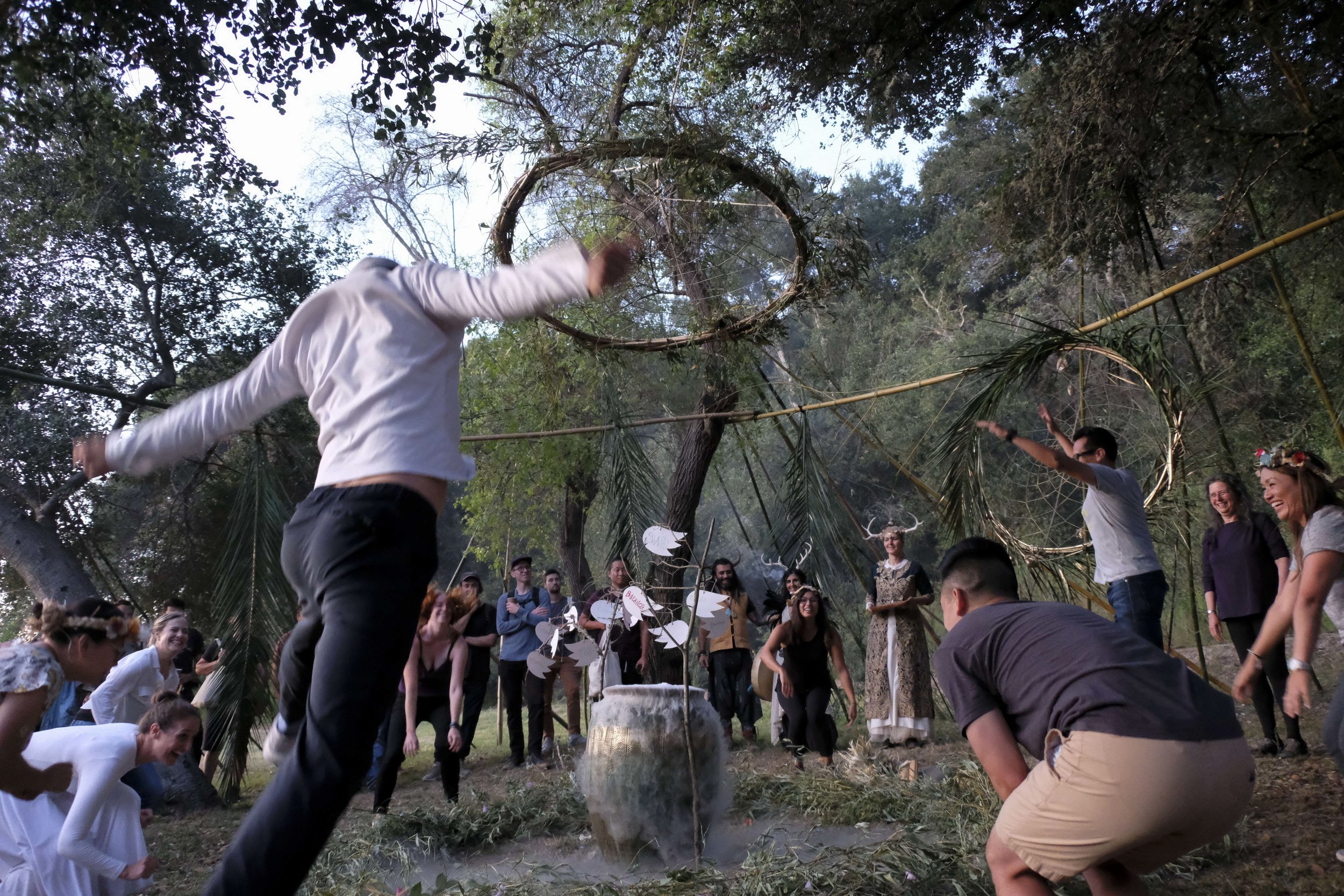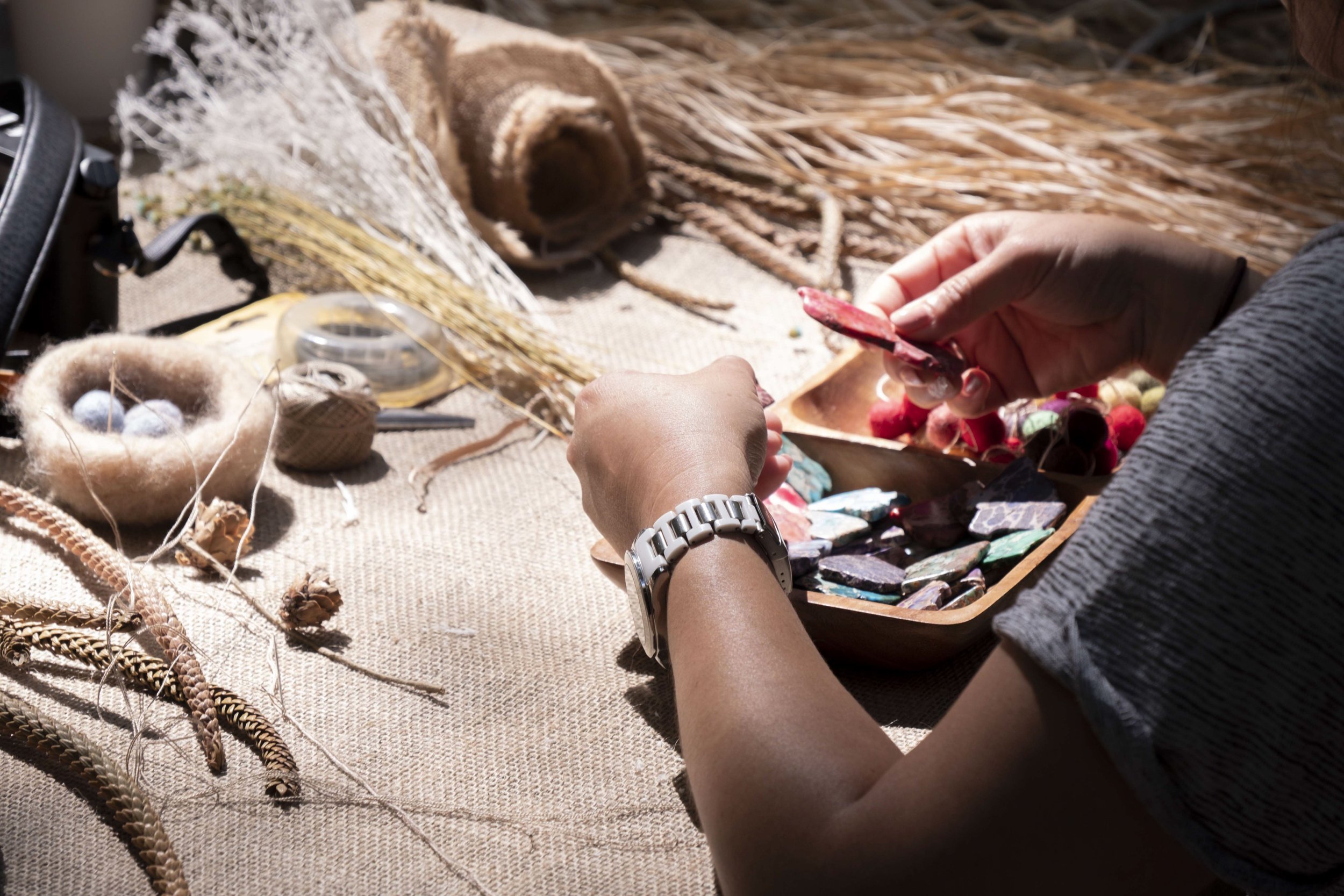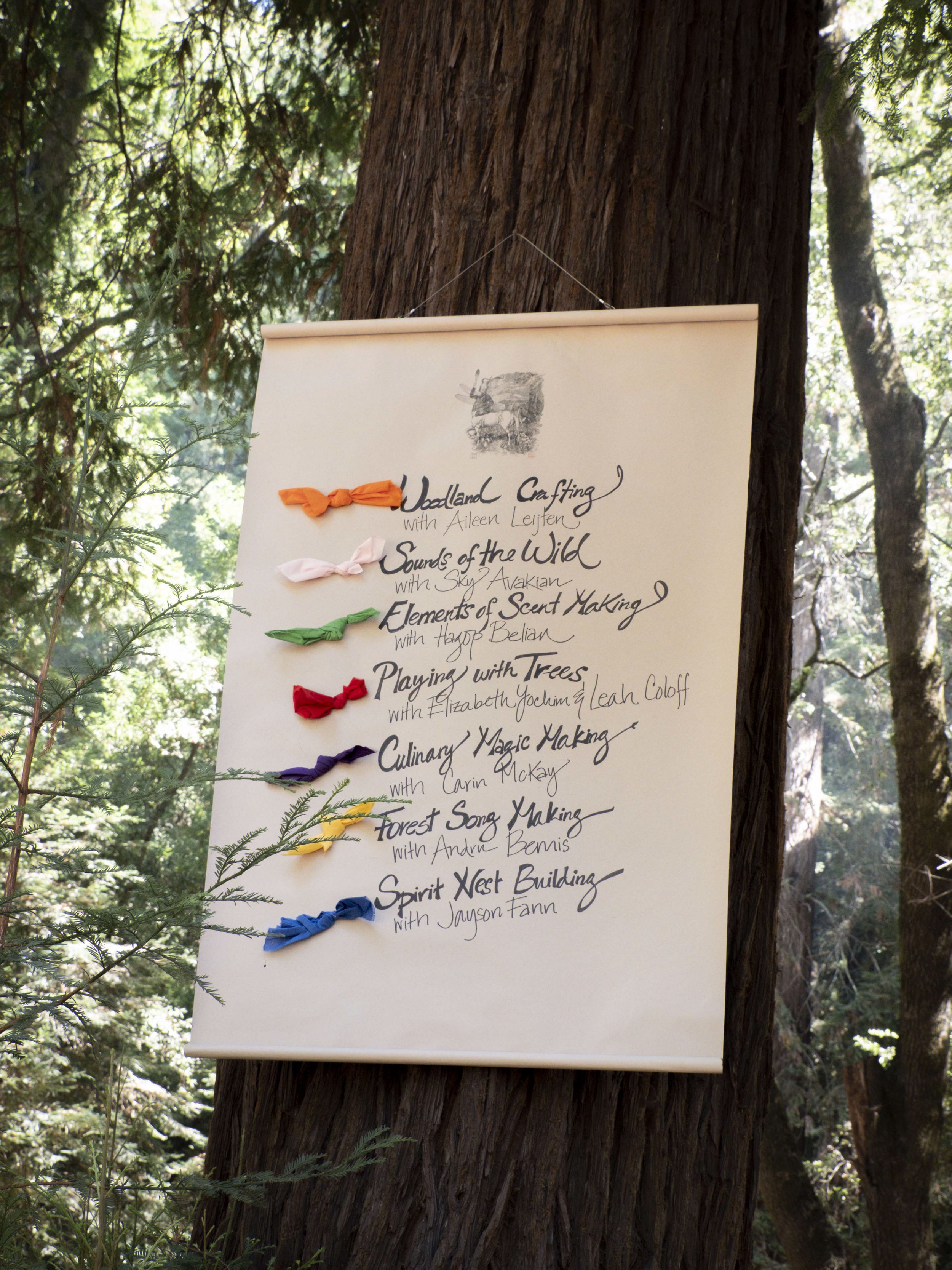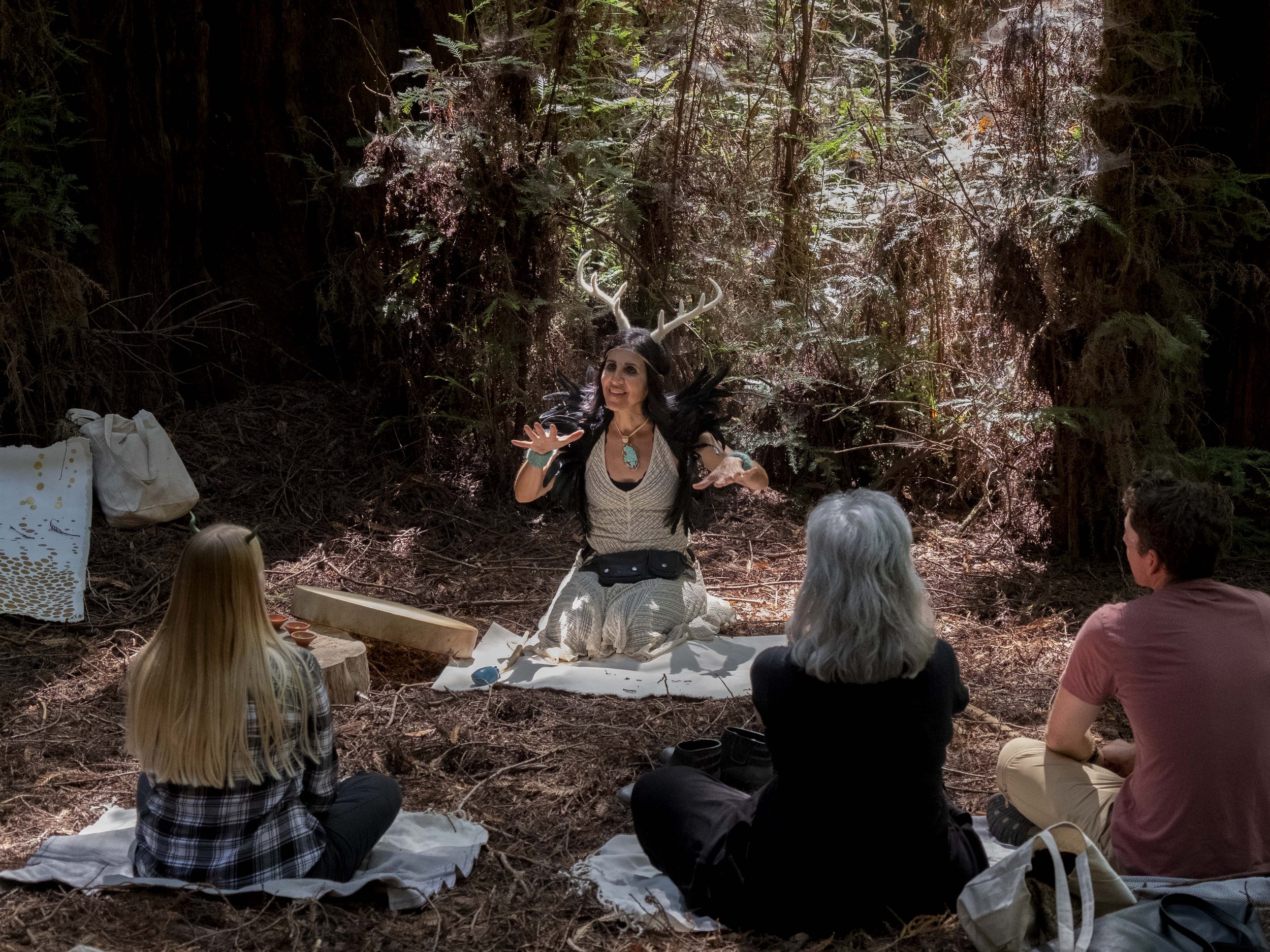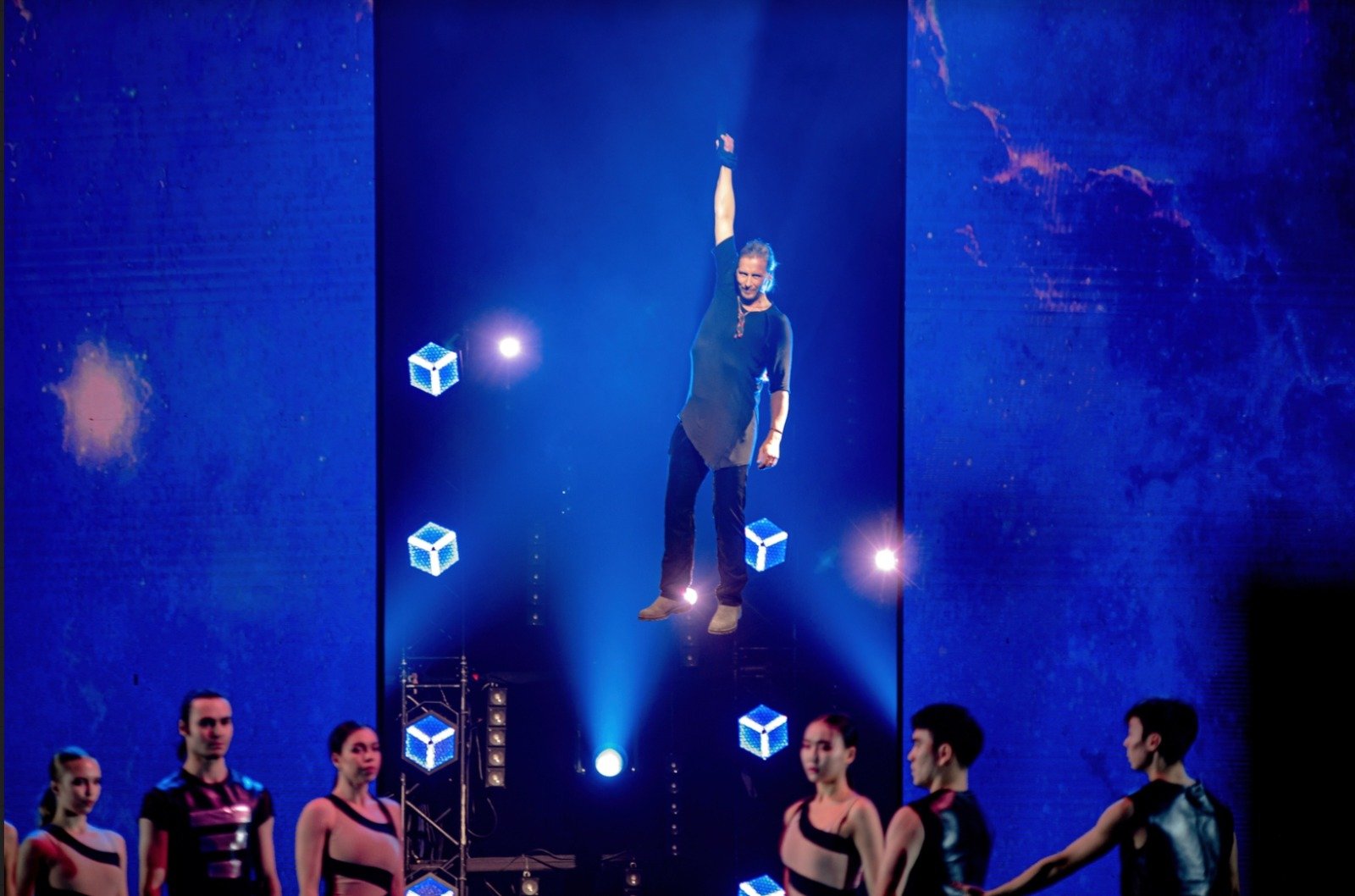How The Nomadic School Of Wonder Teaches Businesses The Power Of Transformative Imagination
Nomadic School of Wonder hosts the Transcend Santa Fe retreat. | ©KATE RUSSELL
Now working with brands like Google, Airbnb, Meow Wolf, and many others, The Nomadic School of Wonder redefines experiential learning, igniting creativity, curiosity, and connection through immersive experiences. Founded by Barb Groth, this innovative institution integrates nature, art, and community to inspire transformative journeys into wonder. By partnering with visionary educators like neuroscientist Beau Lotto, the School empowers individuals and teams to explore new possibilities, cultivating innovation, resilience, and deeper connections. Through dynamic programs and collaborative approaches, it unlocks participants' full potential and celebrates the joy of discovery.
Barb Groth, the Founder of the NSOW, at Lake Crescet | ©MEGHAN GODIN
I caught up with Barb Groth and Beau Lotto on this fascinating journey to unveil the transformative power of wonder and its potential to inspire innovation, resilience, and connection in our rapidly evolving world.
“Since 2015, our traveling troupe of wonder makers has been designing and hosting 'adventures in awe' rooted in nature, art, community, and play – both for individuals and groups. Our teachers are artists, wild horses, neuroscientists, the forest floor, a ball of clay, and our imaginations," Groth explained. Groth emphasized the transformative power of wonder, “We’ve witnessed and studied the transformation that takes place within and between people. Wonder makes us feel more alive, creative, and connected.”
She acknowledged initial skepticism from some companies about the value of retreats for their teams, “From the very beginning, some companies would tell us that they didn’t have time or the resources to retreat their teams. My response was often if you don’t have time to nourish your people and their imaginations, then you don’t have time to create or invent the new.”
“Wonder is one of the most generative tools on the planet,” she said. “And most organizations aren’t tapping into the power of wonder, play and the imagination to expand what’s possible in their people and projects. These are underutilized and fully accessible resources inside all of us.”
Wonder is vital to an organization’s ability to thrive. The school's new offering is teaching organizations how to practice the Art & Science of Wondermaking. In collaboration with neuroscientist Beau Lotto, it teaches leaders and teams how to apply wonder and play to the creative invention process and their most vexing challenges. “When you learn how to weave wonder and play into your work and life, it amplifies creativity, collaboration, and courage – creating the flow state for creative breakthroughs and the birth of the new,” Groth explained.
Reflecting on their clientele, Groth highlighted collaborations with innovative leaders like Ivy Ross, VP of Hardware Design at Google, who champions the transformative potential of arts, play, and wonder, “We’ve had the joy of collaborating with incredibly inspired leaders who understand how wonder and play can positively impact their teams and the bottom line. Ivy Ross, VP of Hardware Design at Google, and co-author with Susan Magsamen of the book, Your Brain on Art, has been leading the movement and demonstrating how the arts, play, and wonder can transform our lives.”
“For Ivy’s Google Hardware Design Team, we designed a day-long “Circus of Wonder” in which our wonder troupe teamed up with former Cirque du Soleil performers and Beau Lotto’s Lab of Misfits for a wonder-making experiment,” Groth recalled. After a day of hands-on embodied play, themed to the circus arts, Beau and his team measured what happened to the Googlers. They saw a dramatic increase in empathy, vulnerability, prosocial behavior, amplified creativity, risk-taking, and courage. All from a day of clowning around, juggling, making music, song, dancing, puppets, and co-creating a circus show together.
Groth shared Ivy Ross’ testimonial, “We came away feeling more deeply connected to each other, more willing to be vulnerable, to take creative risks and felt more creative and optimistic.”
“We’ve applied these learnings and unconventional practices to teaching the art and science of wonder making for top secret engagements with Alphabet x – the moonshot factory, Meow Wolf, Airbnb, and others,” Groth added.
Google Day of Wonder | ©NADINE WELLS
We further explored the importance of wonder in fostering innovation with Beau Lotto. As Lotto emphasized, “In nature, it is ‘Adapt or Die’. In the world of business it is the same, innovate or be selected out. Innovation requires wonder, as it inspires one of our brain’s greatest skills - curiosity.” Unfortunately, our educational and business cultures, and even interpersonal relationships don’t exercise curiosity, much less questions. They instead reward certainty and answers. And yet nothing innovative or insightful, much less interesting, begins with certainty. “They all begin in the same way, with not-knowing, with curiosity, with ‘I wonder why’, ‘I wonder what if’. Which is why for many years we have been supporting leaders in fostering cultures of innovation through wonder,” he added.
Discussing the impact of wonder on the brain, Lotto delved into its role in embracing uncertainty and facilitating growth. “The fundamental truth about life is that it changes. Which means life is movement.” And yet when we face change, our brain’s first response is often to stand still. Our brains would rather experience predictable pain than uncertainty. When we face change, cortisol levels increase, which can degrade our brain cells and immune systems. Our creativity decreases. So too does the quality of our thinking. In uncertainty we become morally judgemental, even seeking more authoritarian leadership to become more certain. “Bodies and minds that don’t move atrophy. Relationships that aren’t expanding are unfulfilling,” Lotto observed. Businesses and leaders that don’t evolve are selected. Employees who aren’t learning leave. Being able to evolve in the face of change was so essential for our long-term survival that evolution gave us a solution to this. It’s a brain state that loves not knowing. The brain-state is wonder.
Beau Lotto, Neuroscientist and Founder of the Lab of Misfits | LAB OF MISFITS
When working with Cirque du Soleil, Lotto’s Lab of Misfits discovered that wonder increases our desire to take risks and decreases our need for ‘knowing’. Others have shown that wonder increases prosocial behavior. In a separate experiment, it showed wonder increases tolerance of another person’s contrary perspective. It even changed one’s perception of self, for the better. “Wonder gives us the curiosity and courage to let go of knowing. Not knowing is - ironically - the most important counterintuitive step that leaders and individuals can take if they are to invent, innovate, and evolve. When my Lab of Misfits works with leaders and individuals, we always begin with wonder, as wonder is a necessary step to live and lead better by being better,” Lotto explained.
Groth and Lotto united in underscoring the practical necessity of wonder in navigating an ever-changing world. The world is changing faster than ever. 40% of CEOs think their current business models will not be sustainable in 10 years. Which means the importance of wonder is practical. It’s not just a nice-to-have. It’s a necessity. “At the personal level, wonder increases mental health. At a social level, wonder seeds collaboration within conflict. When it’s at the heart of a business culture, the result is an increase in loyalty, inventiveness, and productivity,” Lotto said.
For Groth, the wonder expands what we imagine to be possible – the first step in creating a new vision and way of “interbeing” in the world. “Wonder is essential for our ability to thrive as a species. The more we understand within our bodies the deep connection we share with the natural world and with each other, the more likely we’ll be able to co-create a future for all of us,” she concluded



